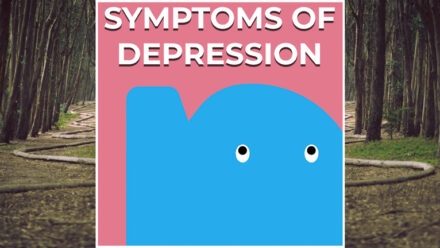
Psychological self-tests. In the wonderful world of psychology and psychiatry it sometimes seems like we can discover all sorts of things about ourselves by simply doing tests.
Do I have ADHD? Am I autistic? Am I struggling with depression? Questions that we are desperate to get answers to. The internet is full of so called psychological self-tests that promise to answer these questions.
But is it really that simple?
Let’s take a step back
Let’s take a look at the truth behind these diagnoses. ADHD and Autism Spectrum Disorder (ASD) are not clearly defined illnesses, but more like classifications within the DSM-5, a handbook for psychiatric disorders. These classifications are based on a set of criteria, but the combinations and manifestations can vary greatly. This makes each diagnosis unique and personal.
Labelling people based on a range of symptoms
The risk lies in the temptation to label ourselves and other people based on a range of symptoms. The tests that claim to be able to ‘diagnose’ ADHD or autism often only look at superficial symptoms and signs. They don’t take into consideration the complexity of the individual, nor the context of their lives. This can lead to a hasty, inaccurate, diagnosis that does more harm than good.
And these tests are certainly no better than a normal, clinical examination, carried out by a healthcare professional that has has done a lot of work with this target group, and has access to information from family and friends of the person.
Psychological self-tests: The commercialisation of these diagnoses
Furthermore the commercialisation of these diagnoses has led to an industry that rapidly puts labels on people and prescribes medication, without looking at the person as a whole. Especially in adults and women with ADHD we’re seeing a worrying trend in which diagnoses are not just a medical, but also a commercial product.
So what is the correct approach?
It’s absolutely crucial to see people in their entirety, in the context of their daily lives. It isn’t just about whether someone matches a set of criteria, but also how these characteristics influence their functioning at home, at work, or at school. Does the manner in which someone focuses, follows routines, or shows flexibility, fit their lifestyle? Or does it lead to problems?
A holistic approach to mental health
Instead of being fixated on test results, we should take a more holistic approach to mental health. It’s time to recognise the complexity of the human brain and the nuances of personal experience. Let’s be careful putting labels on people and focus on understanding and supporting each other in our unique life journeys.
Psychological self-tests- Next time
So next time you see a test that promises to reveal whether you have ADHD or autism, remember that you are more than a diagnosis. You are a complex and dynamic individual, whose worth is not determined by some checklist. Let’s continue the journey together to discover the real you, and see past the myths and misunderstanding.
Thanks for reading, and see you next time on PsychosisNet.com, where we get deeper insights together to unravel the mysteries of our psyche.





Comments: